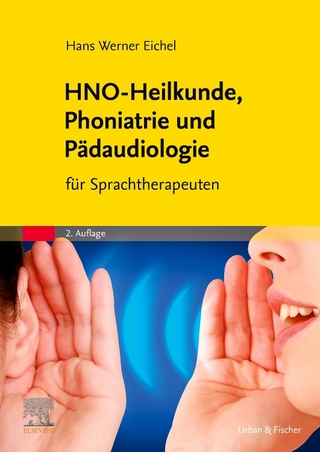
Neurolinguistic Approach to Reading
Plural Publishing Inc (Verlag)
978-1-59756-655-1 (ISBN)
Carol A. Kamara, PhD, CCC-SLP/A, FAAA, is director of the Kamara Center for Learning and Communication Disorders in North Bethesda, Maryland. For more than three decades as a clinician, she has researched and applied theories and methodologies about the diagnosis and treatment for children and adults with mild to severe manifestations of dyslexia. While serving in a clinical role, she also served administratively by advocating for service coverage with state and national insurance programs as well as various groups including vocational rehabilitation, child and world health, and child and adult education groups. Dr. Kamara's professional work settings have included public and private schools, hospitals, and private practice for the last 15 years. She has served as director of a community speech and hearing center, director of the Professional Practice Division of the American Speech-Language-Hearing Association (ASHA), and director of the speech-language pathology department at a private school in Washington, DC. Dr. Kamara has written articles in various publications and given presentations at state and national organizations on topics such as phonology, dyslexia, central auditory processing disorder, infant hearing screening, and best practices in audiology and speech-language pathology. She has served on the ASHA Legislative Council and several other committees for many years. Dr. Kamara is past-president of several state and national speech-language pathology and audiology organizations, and has received Ohio House and Senate resolutions honoring her for services to individuals with communication impairments.
Chapter 1. Provider and Recipient of NAR *Qualifications of the Speech-Language Pathologist *Dyslexia *The Gifts of Dyslexia *The Client Who Would Benefit from NAR *Early Identification *Assessment *Central Auditory Processing Disorder (CAPD) Chapter 2. Rationale for Approach *Neurolinguistics: The Neurology of Language *Language: Listening=>Talking=>Reading=>Writing *Reading and Writing as an Overlain Process *The Listening Environment *Brain Plasticity *Zone of Proximal Development (ZPD) *Brain Training Chapter 3. Measuring Outcome *Evidence-Based Practice *Outcomes of Phonology Focus in Early Years *NAR Outcomes Chapter 4. Other Spelling/Reading Programs *Phonics Versus Whole Language *Lindamood *Phono-Graphix *Phonics Chapter 5. Overview of NAR *Four Stages of NAR **Stage I: The Alphabet **Stage II:. The Mouth **Stage III: Non-Letter Spelling (color coding) **Stage IV: Letter Spelling **Adults Chapter 6. Detailed Description of Stage I: Alphabet Knowledge Chapter 7. Detailed Description of Stage II: Mouth-Ear Phoneme Perception Training *Distinctive Features *The International Phonetic Alphabet (IPA) *Consonant Distinctive Features **Front **Labial **Voiced **Dental **Plosive **Sibilant **Fricative **Nasal **Glide *Vowel Phoneme Distinctive Features **Lip Rounding versus Spreading **High versus Low Tongue Height **Open and Closed Vowels **Front versus Back Vowels Chapter 8. Detailed Description of Stage III: Coding Phoneme Patterns with Colored Objects *Color Coding Phoneme Strings Chapter 9. Detailed Description of Stage IV: Spelling Sounds with Letters Chapter 10. Special Considerations *Pronunciation Peculiarities *Dealing with the Schwa *Merger of Phonology and Syntax Rules **Regular Past Tense Pronunciation of /-ed/ **Plural, Possessive, and Third Person Singular Word Endings **Plural Noun Endings **Plural Words Ending in /y/ and /ey/ **Plural Words Ending in /f/ **Plural Words Ending in /o/ **Root Word Changes for Plural Nouns and Nouns Used Only in Plural **Zero Plural Nouns **Possessive Designation of Zero Plural Nouns **Possessive Designation of Regular Plural Nouns **Pronunciation of Third Person Singular Verb Chapter 11. Logistics *Using the Block-by-Block Spelling Charts *The Grade Level Spelling Lists Chapter 12. Summary Appendix A. Alphabet Charts Appendix B. Consonant and Vowel Distinctive Feature Charts Appendix C. Stage II Activities Appendix D. Phoneme Deletion Exercises Appendix E. NAR Spelling Forms Appendix F. Miscue Analysis Appendix G. Sample Charts, Sentences, Stories from NAR Lists Appendix H. "Rules" for Double Consonants Appendix I. Diagrams Appendix J. Grade Level Spelling Sets
| Erscheint lt. Verlag | 9.4.2015 |
|---|---|
| Zusatzinfo | B/W |
| Verlagsort | San Diego |
| Sprache | englisch |
| Maße | 216 x 279 mm |
| Themenwelt | Medizin / Pharmazie ► Gesundheitsfachberufe ► Logopädie |
| Sozialwissenschaften ► Pädagogik ► Sonder-, Heil- und Förderpädagogik | |
| ISBN-10 | 1-59756-655-1 / 1597566551 |
| ISBN-13 | 978-1-59756-655-1 / 9781597566551 |
| Zustand | Neuware |
| Haben Sie eine Frage zum Produkt? |
aus dem Bereich


